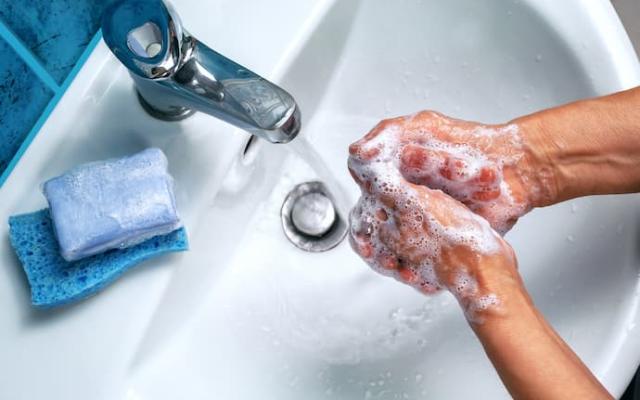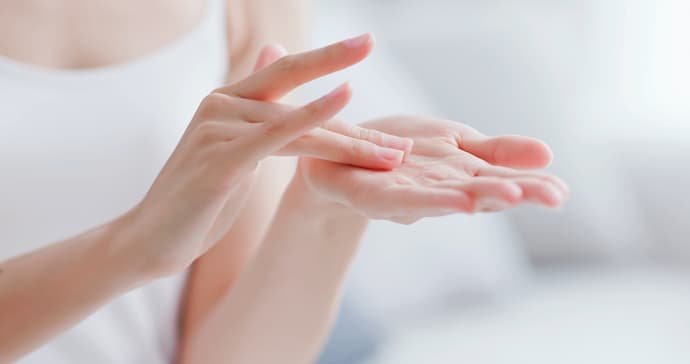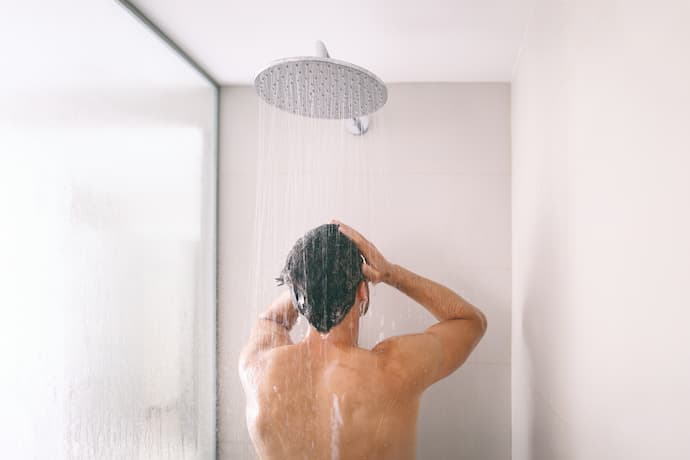Personal hygiene habits: why is it important to take care of our personal hygiene?

Reading time: 6 minutes
Organizations such as the WHO recommend practicing good personal hygiene to prevent disease. The importance of good hygiene has become increasingly clear in recent years, as the world has been faced with a global health emergency. However, hygiene is not just a matter of washing your hands or other well-known hygiene habits.
Generally speaking, we can say that hygiene encompasses many different areas, from brushing your teeth to changing your bed linen on a regular basis. In this article we are going to go into more depth on this subject, and explain in detail which habits you should adopt in order to lead a healthy lifestyle and take care of yourself on a daily basis.
INDEX
Brusing your teeth and dental hygiene
Brushing your teeth is one of the most important personal hygiene measures for the health and well-being of anyone. According to the Cleveland Clinic, oral hygiene is not only important because it helps keep the mouth clean, but it also prevents some health issues such as cavities and gum disease, among others.
It is also worth mentioning that oral hygiene can affect other parts of the body as well. An infection in the mouth, for example, can lead to health problems such as heart disease and strokes, because bacteria can move through the bloodstream to different areas.
Oral hygiene habits involve more than just brushing your teeth; it is also important to use other dental health products, such as dental floss, and to visit the dentist regularly.
Hair and scalp care
Hair and scalp care is not just about aesthetics. It is also important for preventing health problems such as dandruff or the development of certain skin fungi. It should also be noted that with the proper care, and through the use of certain products, hair loss can sometimes be reduced too.
Hair health may also have an impact on a person's self-esteem and confidence, which is why it is so important to pay attention to it.
The American Academy of Dermatology Association provides some recommendations for hair care hygiene and points out that it is necessary to use a shampoo and conditioner specific to the characteristics of each scalp type.
Hand washing
One of the most well-known hygiene habits, especially in the wake of the COVID-19 pandemic, is washing your hands. This is a habit that can help people stay healthier, because it reduces their exposure to microorganisms that can cause disease.
It is important to learn how to wash your hands properly, using warm water and soap, and rubbing all areas of the hands, including the palms, fingers, nails and wrists. Quickly washing your hands does not really do the trick, so you need to take 20 to 30 seconds to make sure you have done a thorough job.
Washing your hands is especially important when preparing food, using the restroom, or after being in public places.
Skin care
Our skin is the largest organ of the body, and it serves as a barrier protecting us from external agents. With this in mind, it is important to protect it, clean it and keep it moisturized and hydrated, because it accumulates sweat, dirt and dead skin cells throughout the day.
Skin care and personal hygiene measures help to prevent problems such as acne and clogged pores. However, remember that using aggressive cleansing products is not recommended, as they can cause dryness and affect the skin's wellbeing.
Skin care is not limited to just the face; moisturizing lotions and creams should be applied to other areas too. People with sensitive skin should also protect themselves from exposure to the sun and use special products suitable to their skin type.

Food hygiene
When we talk about hygiene habits, the first thing that comes to mind is the measures that can be taken to maintain oral hygiene, or the importance of bathing and using the appropriate products for our skin, but the truth is that this is a very broad topic.
When handling food, certain precautions must be taken to ensure that the food is fit for consumption. Care should also be taken against cross-contamination, and hands should always be washed after touching raw foods such as meat, fish and eggs.
Another key aspect is food hygiene is that kitchen surfaces and utensils should be thoroughly washed after each use. This prevents the transmission of foodborne illnesses.
Hygiene habits at home
Personal hygiene and hygiene habits at home are intrinsically linked, because it is also important to live in a clean and germ-free environment. But what do we need to pay more attention to and what measures can be taken to guarantee a clean and pleasant environment?
Let's take a closer look at some of those habits which anyone who cares about their personal hygiene should keep in mind.

The laundry
Not only is this a routine household chore, but it also forms a fundamental part of hygiene and personal care habits in most people's lives. Clothes accumulate germs, bacteria and microorganisms through daily use, which can be transmitted through skin contact if not washed properly.
Keeping your clothes clean is also important for feeling good about yourself, as it prevents unpleasant odors caused by the accumulation of dirt or perspiration. It is a personal hygiene habit that for many people is not necessarily linked to body care, but it is essential for people's physical and mental well-being.
Cleaning and disinfecting surfaces
In addition to having personal hygiene products, people should also invest in products which they can use to clean and disinfect the surfaces in their homes. Contact areas such as light switches, tables and countertops should be cleaned regularly, as they tend to accumulate a lot of dirt and germs.
When you ask someone about key personal hygiene habits, it is not uncommon for people to overlook household cleanliness, but the truth is that it plays a fundamental role in people's health and well-being.
Ventilating our homes
In any indoor space, ventilation is important, as it can control humidity and the spread of fungus. When fresh air circulates throughout our homes, it is easier to remove pollutants such as dust particles and any allergens present in the environment.
This is very simple, but it has a significant impact on people's comfort and well-being.
Why is good personal hygiene so important?
We have already talked about different types of personal hygiene, and what routines a person should follow in order to live in a comfortable and clean space. But why is this so important, and why is it worth investing time in the personal hygiene routines we've mentioned?
To dig a little deeper, let's look at the impact hygiene habits have on disease prevention, and how they can help people feel good and boost their self-esteem.

Disease prevention
One of the main benefits of practicing good personal hygiene is that you can avoid the spread of germs and prevent illnesses. Something as simple as washing your hands after being in a public place reduces the risk of bacteria or viruses entering the body through the mouth, nose or eyes.
Likewise, cleaning your living space helps reduce the accumulation of dust mites, which can help prevent respiratory allergy problems or skin allergies.
Greater self-esteem
To answer the question of why personal hygiene is important, suffice it to say that it helps people see themselves in a better light and boosts their self-esteem. In short, it can be said that good personal hygiene helps us to feel better.
It is also worth pointing out that having a good personal hygiene routine affects the way others see us, which can lead to improved personal relationships, in both professional and personal spheres.
